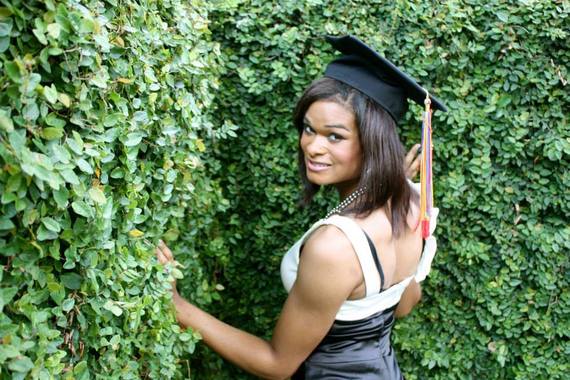The South has a knack for making you feel othered if you're even the slightest bit different. If you're not white, the right kind of Christian, conservative, straight, and cisgender, you'll be made a target. I learned all of this long before I reached the end of my senior year of high school, which is why I wasn't particularly thrilled to attend my alma mater, the University of Georgia. In fact, I wasn't thrilled at all to know that I was essentially signing a contract to stay in the South for at least four more years. I had spent all my life in Georgia, and I was itching to be somewhere where the air was less thick with conservatism and a history (and current status) of intolerance.
But I'm adaptable. I quickly learned that college is a transformative process regardless of location. It's all about finding yourself, discovering your hopes and aspirations and reaching the deeper areas of your mind. Some people come out of the experience with a degree, others with incredible stories, and others simply with a better understanding of their body's tolerance for alcohol. But some, like me, left with a newfound understanding and sense of purpose; I matriculated as a timid, confused boy and departed as a woman standing in her truth.
College was like most of my life -- full of dichotomies. My experiences (in all their eclectic glory) were yearning to come together like a woven tapestry, creating an intricate semblance of understanding and identity. I needed a stark contrast to the double life I lived throughout high school, playing the well-mannered and virtuous "straight" boy at home and the flamboyant, queer prince (think Jack, from Will & Grace) at school.
Due to lack of education and awareness of transgender issues and internalized mislabeling from peers, I came out as gay at 14. I knew this was the right choice despite a lack of community and anticipated support from parents who were Southern, black and Catholic. Don't get me wrong: They loved me, but like most parents they weren't completely equipped to handle having a queer child. But I had no choice but to be authentically me, because queerness (and my high femininity) adorned me like a badge. I was mocked and ridiculed for it long before I even knew what "it" was -- or at least what I thought it was.
Once I made it to my alma mater, I wasn't met by some caravan of queers or any reassurance of my journey. It took time to wade through the campus' hegemonic culture that I was, in many ways, the complete antithesis of. I was a budding queer, black, feminist, trans woman, so it was powerful for me to embrace myself in an atmosphere that fostered and encouraged adherence to a white, cisheteronormative ideal. Greek life and Southern football culture consumed the campus' resources and energy, and it was always apparent that Confederate, quasi-Antebellum ideals marked the mandates, words and ideologies of the powers that be. They weren't going to give me a portrait with my face on it; I was going to have to bogart my way into the frame.
Read more at Autostraddle.
